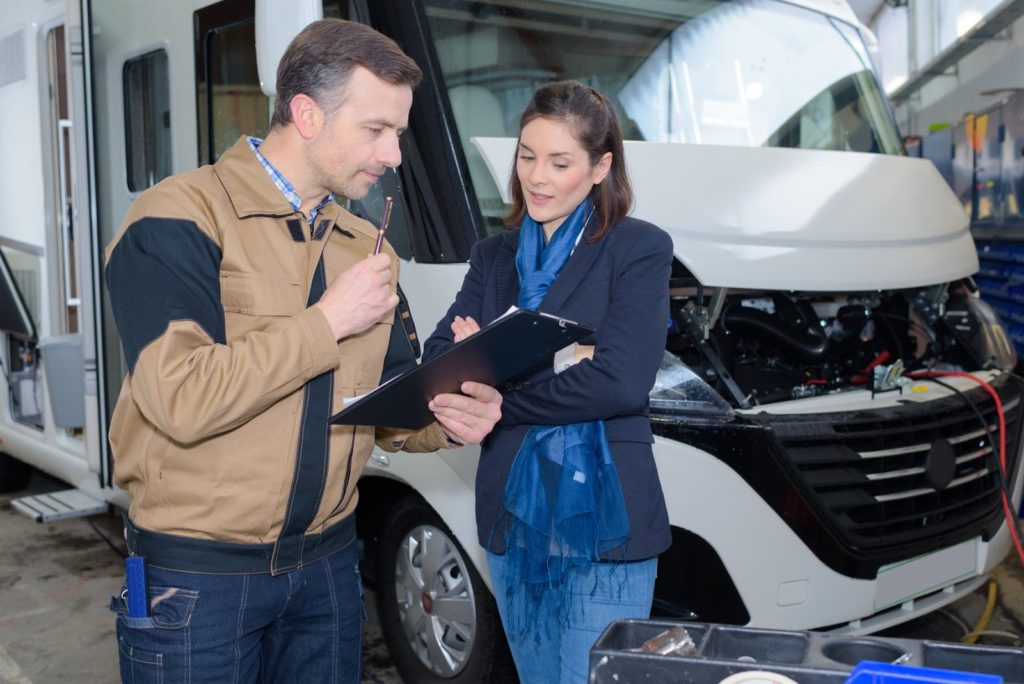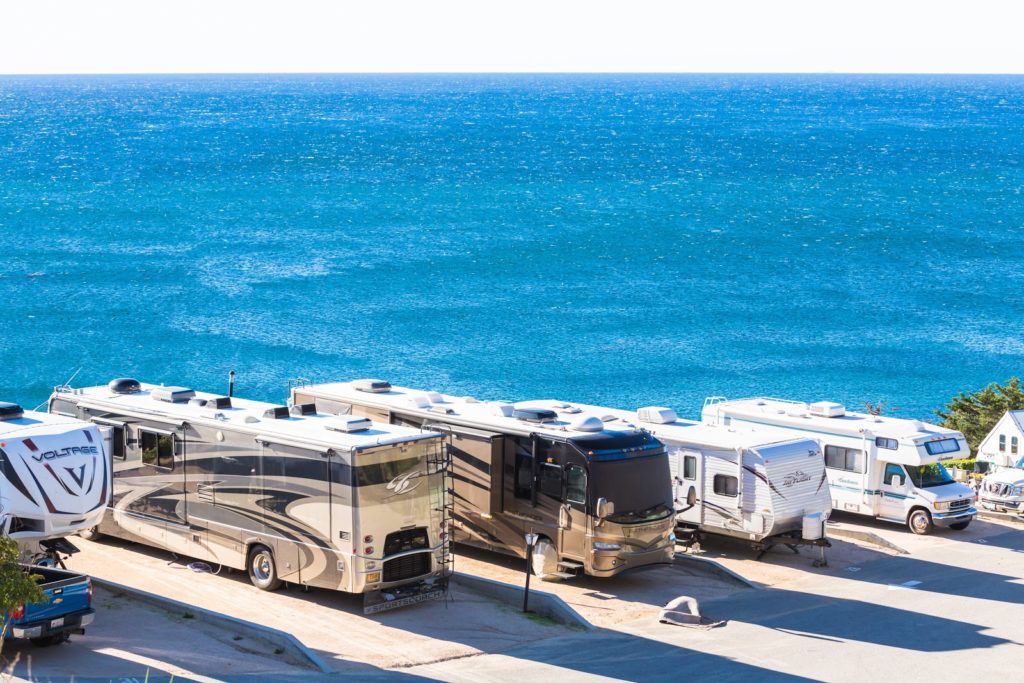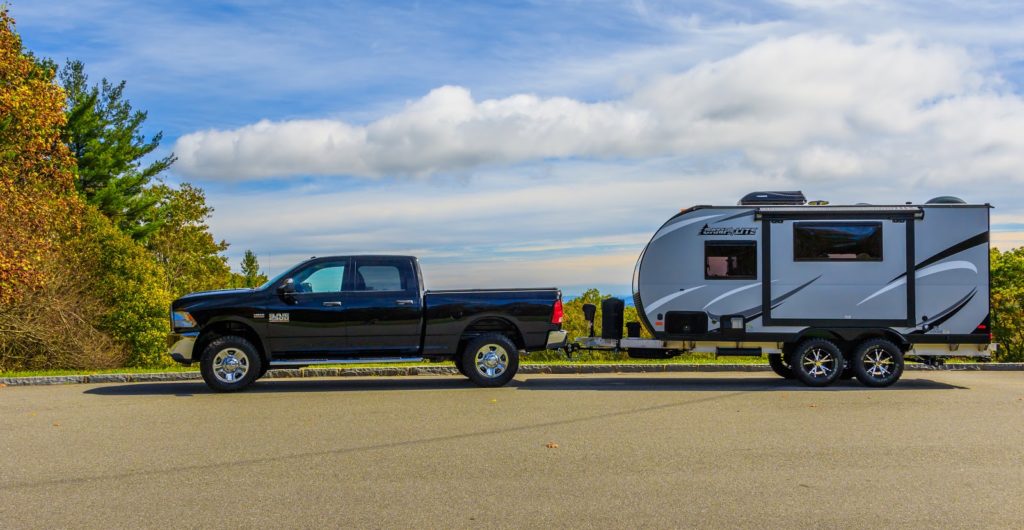Buying an RV is a big investment, which can make it a complicated process. With helpful tips and RV buying advice you will be able to you make a more informed decision on which is best for your first time RV.
With the right information, however, it doesn’t have to be.
Here are seven common mistakes that first-time RV buyers often make. By avoiding these missteps, you can have an enjoyable buying experience and ultimately get paired with an RV that you can enjoy for many years to come.
Buying an RV That Does Not Meet Your Specific Needs
Every first-time buyer’s worst nightmare: Finally owning an RV for the first time, going on your first camping experience or trip, then realizing you didn’t buy the right RV for your specific needs. Maybe it’s too big, or too small. Perhaps there isn’t enough storage space and extra space, or it’s too tall to get into your favorite campground.
An RV purchase is a big investment, and it pays to spend time to make sure the RV you are interested in is right for you. By doing your research, and not buying your first RV on impulse, you will have a much better chance of finding the right fit.
What Type of RV Do You Need?
There are many types of RVs on the RV market, so you’re sure to find something that suits your lifestyle. Every RV should have adequate space for you, your kids, and your family, as well as a convenient floor plan to accommodate how you’ll use the space. Make sure the RV also has the proper amenities you’ll want to use when on the road. Here are just a few of the many RV options out there:
- Pop-Up Campers. Also known as a fold-down or tent trailer, these RVs are a perfect first-time RV purchase for young families.
- Truck Campers. One of the most versatile types of RV, these campers are installed right over a truck bed. They have high ceilings and slide-out rooms to make an expansive interior.
- Small Travel Trailers. A common RV for camping, these travel trailers are designed to be towed by a bumper or frame hitch. They’re a favorite for those who want a comfortable environment anywhere they travel in nature.
- Fifth-Wheel RV. Fifth wheels are the largest towable RV. They’re easy to tow when paired with a large pick-up truck that has a fifth-wheel hitch.
- Class A Motorhome. This is the biggest, most premium type of motorhome, ranging from 29-45 feet long.
- Class B+ Motorhome. This is a popular size of motorhome, slightly bigger than a Class B motorhome.
- Class B Motorhome. A Class B motorhome is the most affordable and smallest type of motorhome, ranging from 18-24 feet.
- Class C Motorhome. This type of motorhome is bigger than a Class B motorhome and offers the luxuries of a Class A RV. They get better RV Gas Mileage than A, but not as good as B.
Interested in learning more about the different types of RVs? Check out our recent blog post to help you with your research.
Considering New and Used RVs
There are benefits to buying both new and used RVs. Check out the pros and cons below so you can carefully evaluate which type is right for your situation.
Pros and Cons of Buying New vs. Used
- New campers are easy to find and available in any number of layouts.
- Many new campers come with the benefit of a warranty, and you will have peace of mind knowing that the camper has never been damaged from misuse.
- On the flip side, new campers can depreciate up to 30 percent as soon as they are driven off the lot.
- Used campers have already begun to depreciate and therefore are less expensive than new campers.
- THE RECOMMENDED PRICE SET BY RV MANUFACTURERS (MSRP) IS AN INFLATED PRICE SO YOU CAN DEFINITELY NEGOTIATE TO SHAVE 15% TO 40% OFF THE FINAL PRICE; WHICH NOT UNUSUAL FOR MOST RV DEALERSHIPS TO CONSIDER.
- Used campers can be a good deal if they have been properly looked after.
- It may take some patience to find a used camper in the right condition, for the right price, to meet your needs.
Whether you choose a new or used RV, make sure you research the RV year, condition, features, and price range to make sure you are getting the best possible deal on your RV.
Not Getting a Used RV Inspected

Used campers can be great deals but, in the long run, it pays to have a professional take a look before buying.
When buying a used camper from a dealership, be sure their in-house mechanics give it the green-light before you agree to buy an RV. If you are purchasing from a private seller, make an appointment at your local RV shop to have them inspect the camper. If that’s something that they don’t allow, you can take that as a big red flag.
Ask them to look for mechanical issues, as well as water damage, signs of excessive wear and tear, and malfunctioning systems. This inspection will cost you a small fee upfront but may save you a lot of money from a big surprise down the road.
RV Towing Vehicle That Does Not Meet Tow Specifications
If buying a towable RV trailer, it is crucial to determine not only the weight of the camper but the tow capacity of your vehicle.
Be sure the towing capacity of your vehicle exceeds the weight of the RV trailer by a good margin. This will not only put less strain on your transmission but will also help to keep you safe by towing the camper with a tow vehicle rated to handle it.
Also, be sure that any additional braking or electronic systems are installed to allow you to tow legally and safely.
Not Having an RV Dealer Walkthrough of All RV Systems
Before driving off the lot with your new RV ask for a lesson on how to use all its systems and what to expect when setting up a travel trailer for the first time.
You don’t want to pull into a campsite or one of your favorite national parks and realize you don’t know how to put down the stabilizing bars, or you can’t figure out how to start the fridge. While not knowing how to run the systems can be annoying, trying to run them without some instruction first and accidentally breaking something can turn out to be hard on your wallet or travel budget. Make sure to get that walk-through before you leave with your new RV.
Not Knowing Your RVs Height Limitations
Drive through any underpass and you’ll see scrapes on the concrete where the drivers of RVs or other tall vehicle have misjudged their height.
In the camping world, it is crucial to know how tall and wide your RV is before you go on your first trip. The dealership or private seller should tell you the dimensions of the RV. Keep the dimensions written somewhere easily accessed from the driver’s seat. Repairing a roof-mounted air conditioner, antenna, solar panels, or the roof itself will cost you big time.
Purchasing the Incorrect Insurance and Roadside Assistance
RV insurance, as well as RV roadside assistance, are different from those you would acquire for a passenger car.
This mistake has cost RV owners in unexpected towing costs and unrecoverable losses. Remember RV insurance only covers the camper itself, not the contents inside. Sit down with your insurance agent to work out the best policy for your needs, and call your roadside assistance provider to add RV coverage to your plan.
You may also want to consider an extended warranty for your rv. You can view more specific information in the following brochures:
Rent Before You Buy
Buying an RV is a big decision, and sometimes it can be helpful to rent before you buy it. This will allow you to try out an RV model you’re interested in before committing to the investment. When you’re renting an RV, consider it a trial run of ownership. Here are some questions you can ask yourself to make sure the RV is the right one for you in the long-term.
- How did the space work for you?
- How was the bathroom situation?
- Was there enough storage space?
- Did the RV include useful amenities?
- Did you like the floorplan and layout?
- Do you have a place to store this RV?
- Is there enough room to fit your family and guests?
- Was the RV comfortable?
- Is the RV in your price range?
- Was the RV easy to maneuver?
Southeast Financial Can Help
Don’t let these eight common mistakes happen to you. By doing your research you can buy a camper that is a good fit for you, in great shape, and will be a comfortable place for you to camp for years to come. Let Southeast Financial help with your recreational vehicle financing options. We offer some of the best RV loan rates on recreational vehicle loans. Learn more today!




